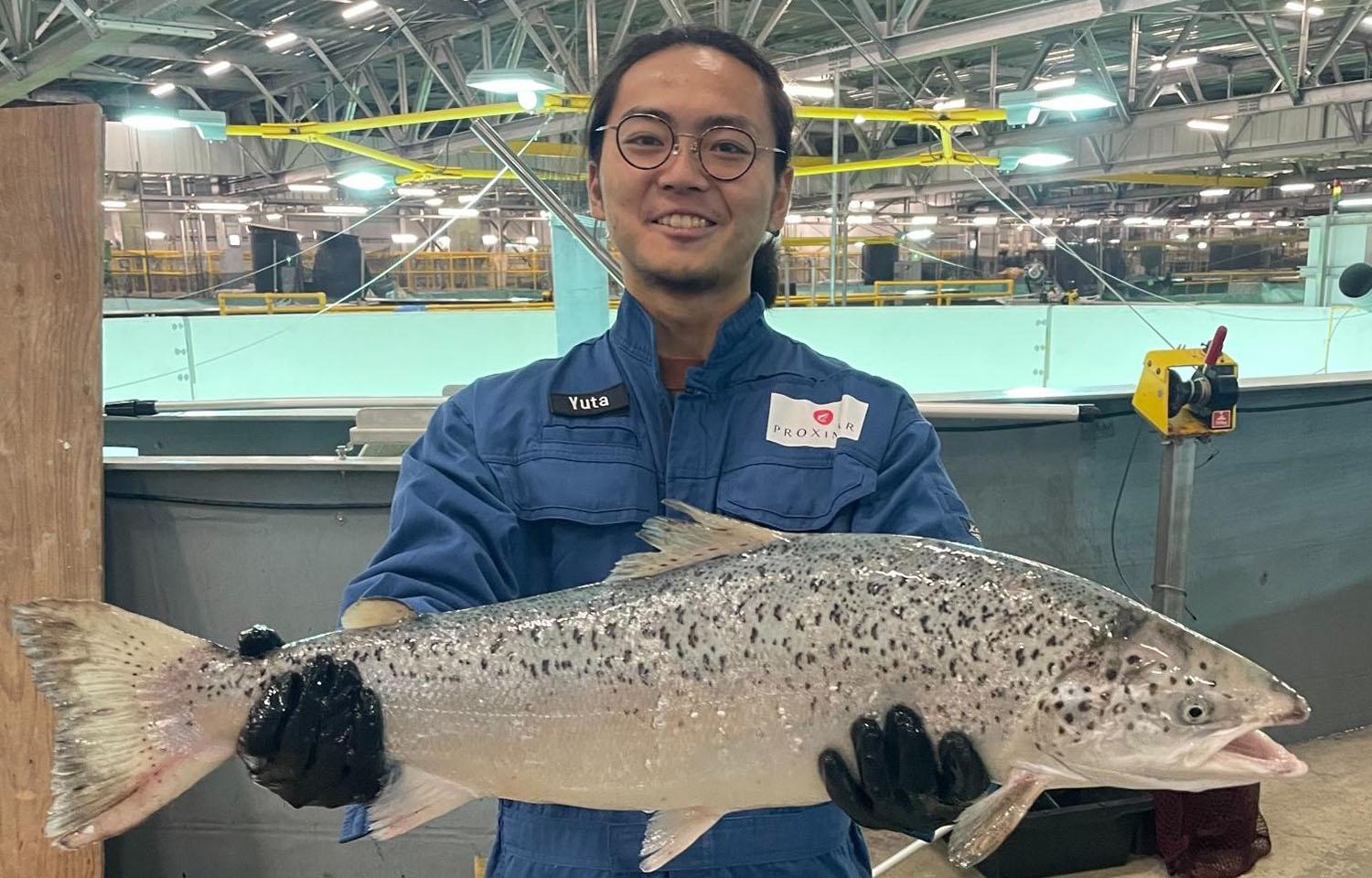Proximar Seafood reported solid biological performance for the first batch of Atlantic salmon it stocked in its Yokohama, Japan-based recirculating aquaculture system (RAS) and said it already secured a long-term sales agreement with Marubeni Corporation.
Proximar Seafood has been planning to have the first harvest at its Japan-based facility in Q3 2024, bringing its first full cycle to a close. The company first stocked eggs into its hatchery in October 2022, and its facility currently has a total biomass of roughly 530 metric tons (MT).
Proximar Seafood CEO Joachim Nielsen said in the company’s Q2 2024 and H1 2024 update that the first harvest will be held “roughly a month from now,” making it the first producer of Atlantic salmon in Japan.
The company said biological conditions in the RAS have been stable, with good fish health and growth that are tracking in line with Proximar’s projections. The company added that it has had some water-quality issues – mainly related to the turbidity of the water.
“This has no direct impact on the fish health or performance,” Proximar said. “However, feeding has been temporarily reduced somewhat during summer, and the company is currently installing an ozone treatment system as a long-term mitigating measure.”
As the company approaches its first harvest, it has secured a long-term sales and distribution agreement with Marubeni Corporation that it said confirmed Proximar’s original price expectations – which will give the company an advantage in the Japanese domestic market. Proximar announced an agreement with Marubeni in April 2022, which will see both parties involved in marketing Proximar’s products.
“We see strong interest from high-end buyers, and we expect that the ongoing sales dialogues will materialize in new contracts over the following months, as we are the only company that can deliver fresh, domestic Atlantic salmon to Japanese consumers,” Nielsen said.
Proximar’s Q2 2024 report said its financial results were also in line with expectations as the company ramps up operational activity ahead of its first sale. The company posted no revenue or income and saw its EBIT drop to a loss of NOK 25.7 million (USD 2.4 million, EUR 2.2 million) during the period, as feed costs increased thanks to the growing stock of salmon.
The company said it is still targeting 5,300 MT of annual production in Phase 1, with a gradual ramp up of production after the first harvest.
“We are pleased to see the standing biomass increase at pace,” Nielsen said. “Fish health and safety remain our key priorities going forward. Our fish receives positive feedback in terms of color, fat, and taste, which is very encouraging as we are now approaching the first harvest.”
The company also said following minor modifications and improvements, it will need to spend an additional NOK 30 million (USD 2.9 million, EUR 2.6 million) during the second half of the year on capital expenditures. It added that it will finance the improvements with sales of the company’s holdings of its convertible bond.
Proximar had a mortality incident in early 2024 when a tank breach resulted in the loss of 50,000 salmon. Since that time, the company said it has fixed the issue that caused the breach and the issues have been resolved.








